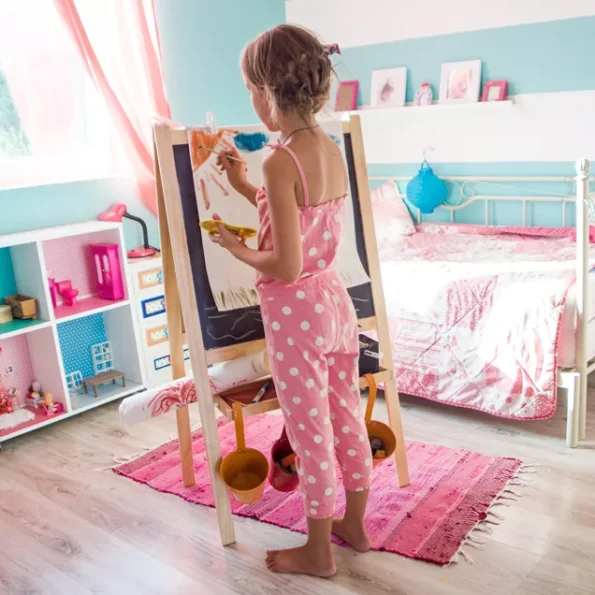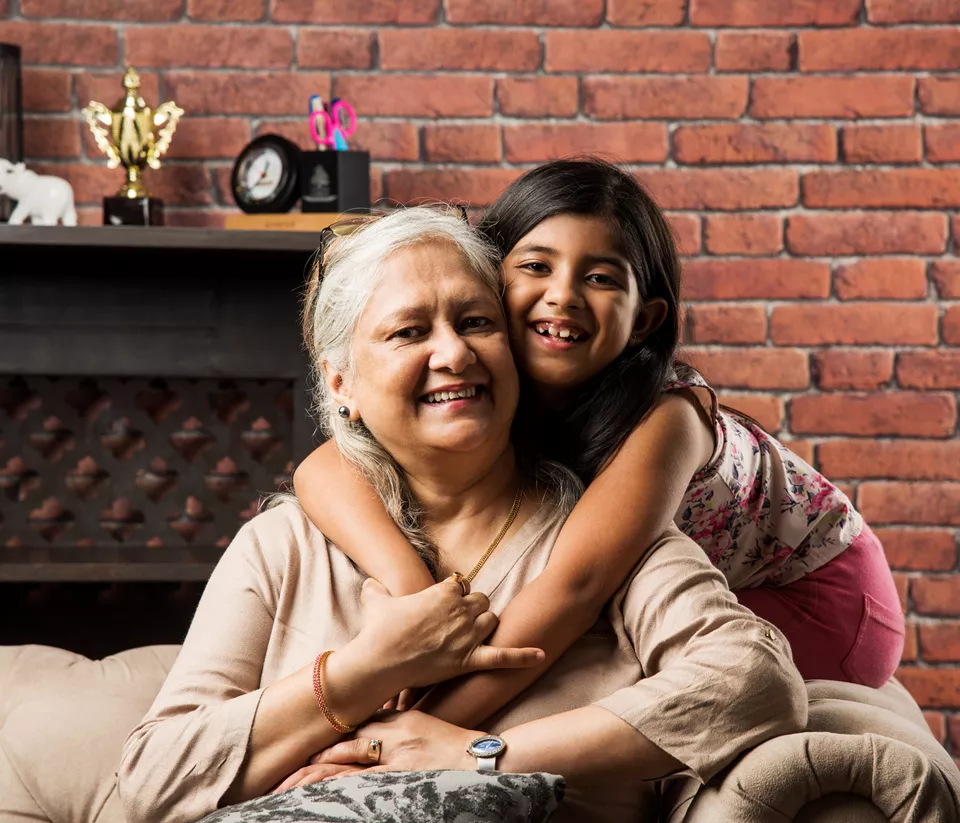
Do you need a spare room to foster?
It’s a requirement that you must have a spare room to foster a child in the UK – the National Minimum Standards state that every child in the foster home over the age of 3 should have their own bedroom.
Why you need a spare room to foster
Being separated from family is already a distressing experience for a young person, so having their own bedroom is essential to give them a quiet space to escape to if they need some time alone.
We also find that it helps children settle into their new foster home and provides them with a sense of security and belonging. Plus, we often don’t know the full history of a child in care and what they’ve experienced, so it’s not fair or appropriate for them to share a bedroom with somebody they don’t know.
Additionally, many children in care aren’t really used to rules and boundaries; having their own bedroom is therefore not only essential for establishing new routines, such as consistent bedtimes, but also reduces disruption to other children in the foster home.
Benefits of having a spare room
- The young person has their own space
- The young person has security and privacy
- A spare room provides a child with a safe haven

DOES MY SPARE ROOM NEED TO BE APPROVED BY THE AGENCY?
Yes, we’ll need to check that the bedroom you intend to use for fostering is suitable for a child to stay in. It should meet the minimum bedroom size for fostering – big enough to fit a single bed, chest of drawers and a small desk for homework or play. It must also have a good amount of natural light and be decorated to a nice standard, so it feels homely and comfortable.
Children cannot be made to share a bedroom in order to make space for fostering. Even if your children currently share a room and you have another spare, we wouldn’t be able to count this as a spare bedroom. That’s because as children grow up, they may want their own space which could impact the stability of any child placed with you and potentially cause friction within the foster home in future.
Frequently asked questions
Do I need to own my own home to foster?
No, you don’t need to own your own home to foster. In fact, we have many foster parents who rent their property – you’ll need to get the landlord’s permission to foster.
Who can apply to become a foster parent?
We welcome individuals from all walks of life to join our team of foster parents. You can be:
- Male or female;
- Single, married, divorced, co-habiting;
- Straight, gay, bisexual or transgender;
- From any ethnic group or religion;
- Any age over 21 – so long as you’re fit and healthy, and able to meet the needs of a child in care.
Of course, you’ll need to meet the initial criteria to foster, which are that you’re over 21 years old, have the legal right to work in the UK and have a spare bedroom that’s always available for a child in care.
I have young children; can I still foster?
We work with children and young people who’ve had incredibly difficult starts in life and need a lot of care and attention to help them develop and reach their full potential.
This can be challenging for parents with young children, however, not impossible; it completely depends on your personal circumstances and whether you’re able to meet the needs of a child in care.
As part of the process to become a foster carer, we’ll provide you with lots of information about the role and what to expect, so you’re able to make an informed decision about whether fostering is right for you and your family at this time.
If you’d like to speak to one of our fostering advisers and receive friendly, no-obligation advice, simply complete our online form or give us a call on 0800 0857 989.
Can you foster if you have pets?
Yes, you can absolutely foster if you have pets – in fact, there are some fantastic therapeutic benefits of having pets in the foster home and we often see great companionship between pets and children in care.
We do have to make sure that pets have a suitable temperament to be around children and visitors in the home so that we can ensure the safety of the young people we place in your care.
Please note, we cannot accept applications from anybody who has a banned breed in the UK, as part of the Dangerous Dog Act.
How do I apply to be a foster parent?
Here are the steps you’ll need to take to apply to become an ISP foster carer:
- Take your first step – simply complete our online enquiry form or give us a call on 0800 0857 989.
- Initial call – we’ll give you a call, so you can learn more about fostering, the children we work with and the wrap around support we provide to our foster parents, plus answer any of your questions. If you’re ready to move forward, we’ll ask you a few questions and arrange a home visit.
- Home visit – one of our team will visit you at home, where we’ll spend more time getting to know you and vice versa. The visits tend to last between 1-2 hours and are a fantastic opportunity for you to find out everything you need to know to decide whether fostering is right for you. These can also be completed virtually via a video call.
- Apply to foster – you’ll need to complete an application form to be considered to become a foster parent. If successful, you’ll be allocated an independent assessing social worker, who start your fostering assessment. The application form can be completed online or via a hard copy that we can send to you.
Once your application has been approved, you’ll start your fostering assessment which generally takes around 4-6 months to complete.
What checks are carried out?
As part of your fostering assessment, we’ll carry out various mandatory and optional background checks, such as an enhanced DBS (Disclosure and Barring Service), local authority and health and safety checks, as well as collect a number of personal and professional references.
These checks and references are a vital part of the application process to ensure the safety and wellbeing of the children and young people we may place with prospective foster carers.
Speak to our team today
Whether you’re looking for more information or you’re ready to apply, we’re here to help you on your journey.
Enquiry Form
The company takes the requirements of GDPR seriously in ensuring the privacy and lawful processing of personal data provided to us by you. Please view our privacy notice which explains how the company will manage and use your personal data. This site is protected by reCAPTCHA and the Google Privacy Policy and Terms of Service apply.
